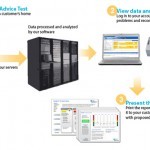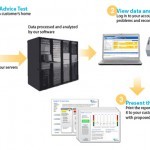Air conditioners break and need repair in Tampa and across Florida; it is a fact of life. Today AC isn’t a luxury—it is a necessity. But when an AC or Heat Pump breaks, who do you call? Hundreds of AC companies are licensed in Florida, but how do you choose? We have some tips for the savvy consumer!
–If it sounds too good to be true, it usually is. AC Repair companies in Tampa often run advertisements that say “FREE” tune up or offer a low cost tune up. If you are searching for a great deal on a cheap repair, you should know that the motive of many of these companies is to find something wrong with your AC unit so they can write up a huge repair bill or sell you a new system.
–Check References! Before you call an AC company to make a repair, check their reputation. Thanks to the Better Business Bureau and Google, checking in on customer experiences is easier than ever. Look for companies with many reviews and mostly favorable ones. In the AC repair industry, especially in Tampa, there will always be people who are hard to please. Look for companies who have a mixture of good and bad reviews but have responded to the bad ones in a personal and timely fashion. If every review is a glowing one, they might be fabricated to make the company look better than they are.
-Are they licensed and adequately insured? Take a moment and look at the Florida Department of Business and Professional Regulation’s website and make sure that the company is licensed to do work. Using an unlicensed contractor is a dangerous game. Your homeowner’s policy could get hit with the claim if an unlicensed contractor is injured on your property! Just to repair an AC unit in Tampa, a state license is required! Bayonet’s AC license number is CAC058062 and the plumbing license number is CFC042998. Both licenses are held by the company’s owners. Make sure the license holder isn’t someone the company has hired to “rent” the license, leaving virtually no responsibility on the owners or technicians, as it isn’t their State license on the line if a complaint is filed.
–Repair or Replace? Many AC companies want to push the AC replacement over the AC repair. If your system is using R410a refrigerant and is under ten years old, a company pushing to replace your system instead of suggesting an AC repair should warrant warning bells! R22, commonly known as Freon™, is being phased out across the country. Additionally, the Department of Energy has mandated that all AC systems sold in the US must meet a minimum seasonal energy efficiency rating (SEER) of 13. So if your AC system is in need of a repair in Tampa or anywhere in Florida, use this as qualifying criteria: 1.Is my AC system older than 10 years? 2. Does it use R22 refrigerant? 3. Was it less than 13 seer when I bought it? If you can answer “yes” to two or more of these questions, you might be a candidate for a new system; but if you can answer “no,” you are a likely candidate for an AC repair instead.
-Who’s going to complete the AC Repair? The technician arrives at your home. Hopefully, he or she is driving a company vehicle with a logo and hopefully he or she is wearing a uniform. But who is it really? Use a company like Bayonet Plumbing and AC which is Ask the Seal Certified. What’s that mean? It means that every employee who enters your home or deals with sensitive information-like your credit card number-has been background checked by a third-party company. AC repair is one of the most popular trades taught in penitentiaries. Where did you AC repair technician get his experience?
The bottom line is simple, Tampa: Don’t Sweat, Just Call Bayonet for AC repair you can trust.











